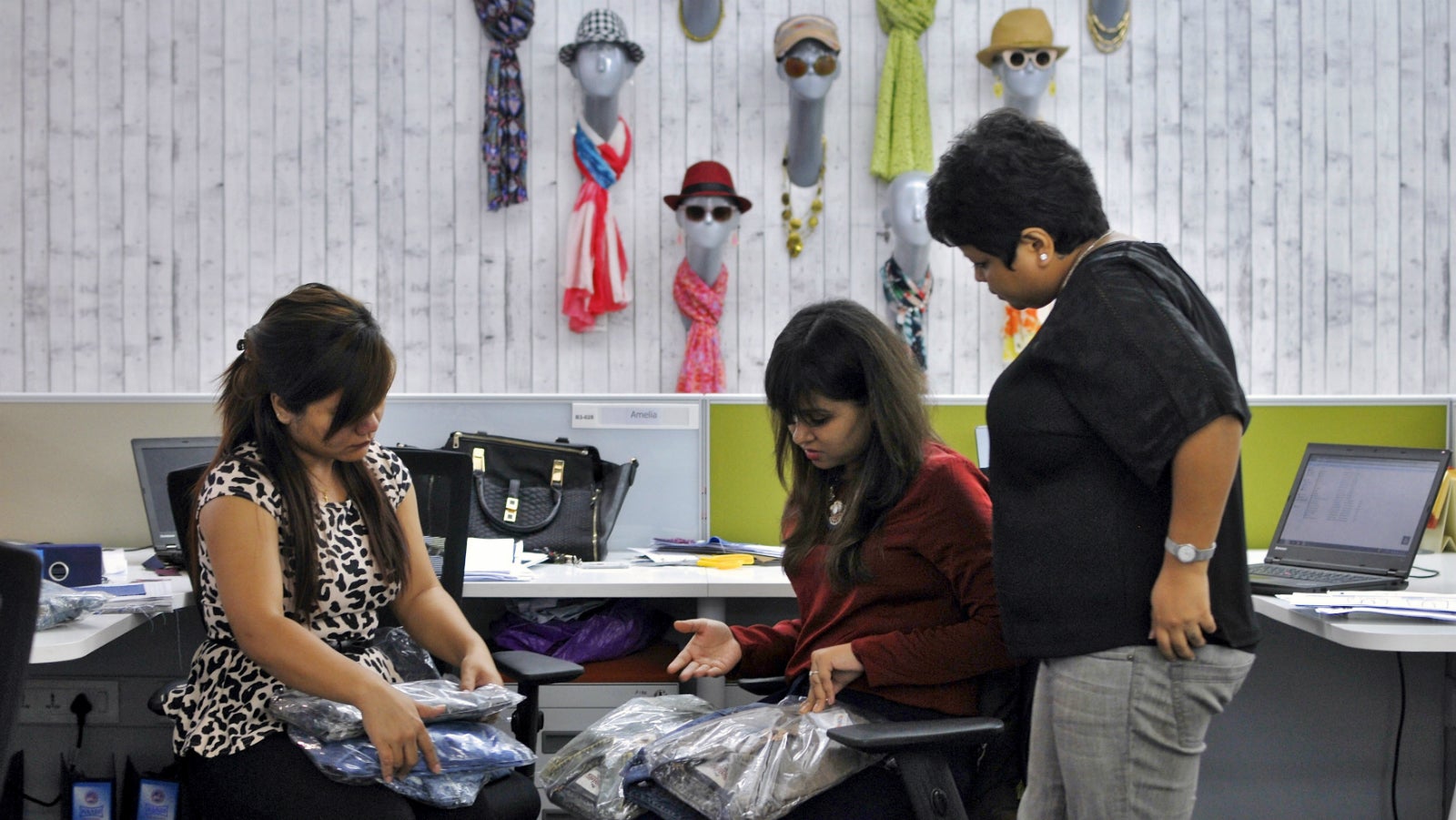Which is the best startup school in India? Another startup
Even as a student at VIT University in Vellore, Tamil Nadu, Sukanth Srivastava knew he wanted to start his own company.


Even as a student at VIT University in Vellore, Tamil Nadu, Sukanth Srivastava knew he wanted to start his own company.
However, he still accepted the job of a product manager at Paytm, India’s largest mobile wallet service, in August 2014.
“You need to learn how a startup office works. Straight out of college, it taught me a lot of discipline, the actual meaning of deadlines, and how to handle pressure,” Srivastava, who worked on Uber’s integration with Paytm’s mobile wallet, among others, told Quartz.
But, more importantly, at Indian startups, there are higher chances of meeting young people like you, who want to eventually become entrepreneurs, the 23-year-old explained.
At Paytm, Srivastava met 28-year-old Himanshu Arora. Through Arora, he came in touch with Vishal Gupta, a coder working for IT services and solutions company, R Systems. Eventually, the trio left their jobs around May, and founded Tooler, a new on-demand laundry service in New Delhi and its suburbs.
“I was clear I cannot be a single founder. You need people to handle rejections with you, and you need different skill sets to start your own company,” Srivastava said.
But this is not the first time that an employee at any startup has taken this route. In fact, existing technology startups are increasingly becoming training grounds for young entrepreneurs.
Like Srivastava, many credit this trend to the intense training and exposure that a startup gives its employees.
Entrepreneurship lesson
Shankar Prasad, a former top executive of Airtel and Tata Communications, decided to take the entrepreneurial route in 2011. But, instead of starting something of his own right away, Prasad decided to learn more about entrepreneurship by working at ticket-booking startup redBus and healthcare startup Medybiz Pharma.
“I took a huge salary cut when I joined redBus, but the learnings that I picked up there help me a lot today,” Prasad, founder and CEO of Snaxsmart, a startup that provides health-food vending machines, told Quartz. “Had I started my company right after my big corporate jobs, I would have chosen to set up a swanky office, spent a bounty on hiring many employees, and then the venture would have become unviable in six months.”
“In fact, if I had hired people back then, I would have given them definite roles and told them to do just that. Today when I hire, I tell people to roll up their sleeves and be ready to do anything, because that’s how startups work,” he added.
Pritesh Gupta, a former employee of Ola and TinyOwl, has recently co-founded ZipGo—an app that aggregates shuttle AC bus services.
“When I joined Ola (in October 2012), I had not imagined becoming an entrepreneur myself. But by the time I left TinyOwl (in August 2015), I was all set to startup something of my own,” Gupta told Quartz.
Gupta recalls that Harshvardhan Mandad, co-founder and CEO of TinyOwl, was “extremely supportive” of his decision. In fact, Gupta says he would even reach out to his former boss when ZipGo is looking to raise funds.
Personal interest aside
Several CEOs of successful startups also encourage employees to start their own companies.
“If an employee tells me that he plans to set up a startup of his own, I will tell him, bohot achi baat hai, bilkul karna chahiye (That’s very good. You should certainly do it),” Rohit Bansal, co-founder and chief operating officer of Snapdeal, told Quartz. ”I will feel morally wrong if I told anyone that it is not a good idea. Life is too short; people should be doing what they are really passionate about.”
Ambarish Gupta, founder and CEO of Knowlarity agrees. “I feel happy when my employees come up with great ideas for their startups. We encourage great minds and awesome ideas,” he told Quartz. Gupta has mentored and helped several of his employees become entrepreneurs.
Meanwhile, Bengaluru-based mobile advertising startup, InMobi, has supported some 30 startups—including EnglishDost, PickYourTrails, Houzify, The Nudge Foundation and Cureyo—that were founded by its former employees.
“We encourage people to pursue their dreams, and let them know that they are always welcome to come back,” Naveen Tewari, founder and CEO of InMobi, told Quartz. “In fact we have had cases of people who have pursued their startup aspirations, and have joined InMobi back, we call them boomerangs.”
And even young startups do not hesitate when it comes to mentoring new entrepreneurs.
At least seven startups have been founded by former employees of 18-month-old food ordering app TinyOwl. But exits of all these employees have been smooth and without hitting TinyOwl.
“We are supportive towards aspiring entrepreneurs in our teams and they are supportive of us. We believe that this is our way of creating an ecosystem,” Tanuj Khandelwal, co-founder of TinyOwl, told Quartz.